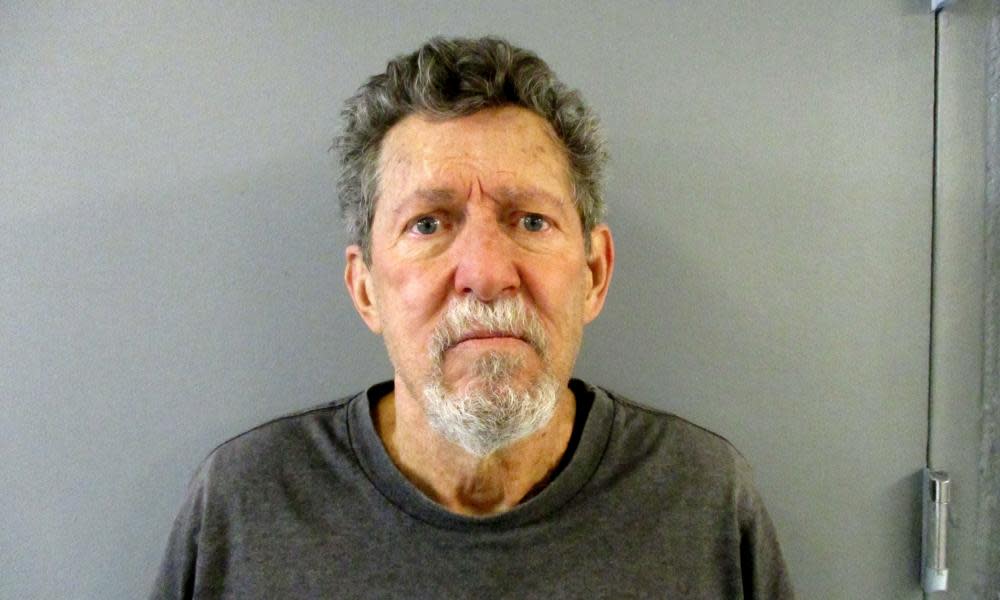Police say man’s 1982 mountain rescue holds key to double murder mystery

- Oops!Something went wrong.Please try again later.
Investigators in Colorado have linked the extraordinary 1982 rescue of a stranded motorist from a frozen mountain pass to the murders the same day of two young female hitchhikers – one of the state’s most notorious and enduring cold cases.
Alan Phillips, 70, was arrested in March over the killings of Annette Schnee, 21, and Barbara Jo Oberholtzer, 29, who went missing while hitchhiking separately near the ski resort of Breckenridge, where they both worked.
Four decades of progress in DNA testing allowed detectives to finally match Phillips to samples found at the murder sites, through genetic genealogy.
The appearance of his mugshot on local television caught the attention of retired fire chief Dave Montoya, who recognised the man he rescued from the top of Guanella Pass on a freezing January night 39 years ago.
Phillips drew attention by flashing an SOS message with his truck’s headlights. It was spotted by a sheriff who was in an airliner flying overhead, then relayed to authorities by the plane’s pilot.
The bodies of the two victims were found months apart, but detectives now allege that Phillips, a father of three, kidnapped, assaulted and murdered both women on 6 January 1982, the day he was rescued. He was arrested in Dumont, Colorado, 20 miles from Guanella Pass, and is scheduled to make a first court appearance in September.
“We ended up picking up a guy straight out of hell,” Montoya told Denver’s KUSA TV.
Montoya said the circumstances of the rescue were “the craziest thing I ever heard of”, and recalled reaching Phillips shortly after the alert was received by the fire department in Clear Creek county.
“Sure as heck, there he was in his little pickup, and he saw me and said, ‘Oh, God, I’m saved,’” Montoya said.
“He said he got drunk and decided to drive home. And I said, ‘You came up over the pass?’ And he said, ‘Well, it seemed like a good idea.’ I thought, how in the heck did this guy get so lucky, for all the stuff to fall into place?”
Montoya said he noticed a large, fresh bruise on Phillips’s face, which he said the then 30-year-old said he sustained when he left his truck to urinate then collided with it in zero visibility as he returned.
Detectives believe Phillips, a car mechanic, shot both women and dumped their bodies before attempting to drive across the mountain as the temperature fell to -20F.
Oberholtzer was found by her family 10 miles south of Breckenridge on a snow embankment the following day, about 20 miles from where some of her belongings were recovered, according to the Colorado bureau of investigation (CBI).
Schnee was found six months later by a youth in Park county. The CBI said she was discovered face down in a stream with a gunshot wound to her back.
Charlie McCormick, a detective who worked on the case from 1989 as a private investigator for the victims’ families, and later as a volunteer for Denver law enforcement, said genetic genealogy research had unlocked the case.
The process involves uploading crime scene DNA to genealogy databases in the hope of finding a familial match. It was a “phenomenal” moment when the lead researcher called to say the link to Phillips was found, McCormick said.
The detective said he was surprised Phillips had remained living so close to the scene of the murders.
“If I had done something like that, I’d have been long gone,” he told KUSA TV. “After avoiding it for all these years, he’s now going to have to deal with it.”
After Phillips’s arrest in March, Schnee’s mother, Eileen Franklin, 88, said her family had endured “39 years of hell”.
“I thought there’d be no closure. I thought maybe I’d be gone before I had closure to this case,” she told Denver’s Channel 7 News. “I’m ready to go when it’s my time now.”

